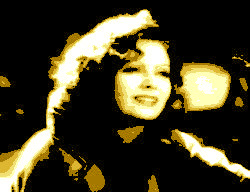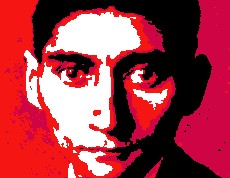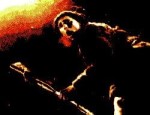Film Review
Michael Arlen's provocative 1924 novel
The Green Hat became one of the
most scandalous Broadway plays of the 1920s before finding its way on
the big screen, tamed and tempered as
A
Woman of Affairs. With the more lurid aspects of Arlen's
racy novel excised or at least toned down to a significant degree, the film adaptation ends up
being a fairly run-of-the-mill melodrama, although with Greta Garbo
breezing in at the height of her powers as the lead character it can hardly be called
dull. After
Flesh and the Devil (1926),
the film that made Garbo's name in Hollywood,
Clarence Brown teams up with the actress for a second time, along with
Garbo's favourite cinematographer William H. Daniels and her off-screen
lover John Gilbert.
Perhaps too conscious of how it would be received by the censor,
A Woman of Affairs has far less passion
than other Garbo vehicles of this time but it is stylishly shot and its
lacklustre screenplay is redeemed by some compelling performances from a
distinguished cast. Garbo is, as ever, mesmerising as the
misjudged heroine who is tortured by an unattainable love, and Douglas
Fairbanks Junior gives one of his better performances as a man gradually
succumbing to alcoholism. Gilbert only comes into his own in the
last third of the film, and by now it is clear that Garbo has overtaken
him as MGM's leading light. Just as their off-screen romance was
dwindling, so their on-screen pairings looked increasingly frosty and
awkward. This actually works to the film's advantage and lends an
added poignancy to Garbo's performance - the one great romance of her
life is over, and she knows it. Clarence Brown would later have
the honour of directing Garbo in her first sound feature,
Anna Christie (1930)
and subsequently
Anna Karenina (1935).
© James Travers 2014
The above content is owned by frenchfilms.org and must not be copied.
Film Synopsis
English aristocrat Diana Merrick has been in love with Neville
Holderness since they were children but the latter's father forbids
their marriage and insists that Neville gives her up so that he can
make his fortune in Egypt. Diana ends up marrying David Furness,
the best friend of her brother Jeffy, who regards him as a model of
virtue. Still faithful to Neville, Diana is unable to tell her
husband she loves him, and he ends up killing himself, for reasons that
are unclear. When Diana next meets Neville, he is engaged to
another woman, Constance. Realising she has lost her one hope of
happiness, Diana falls dangerously ill, and only Neville has the power
to save her...
© James Travers
The above content is owned by frenchfilms.org and must not be copied.



